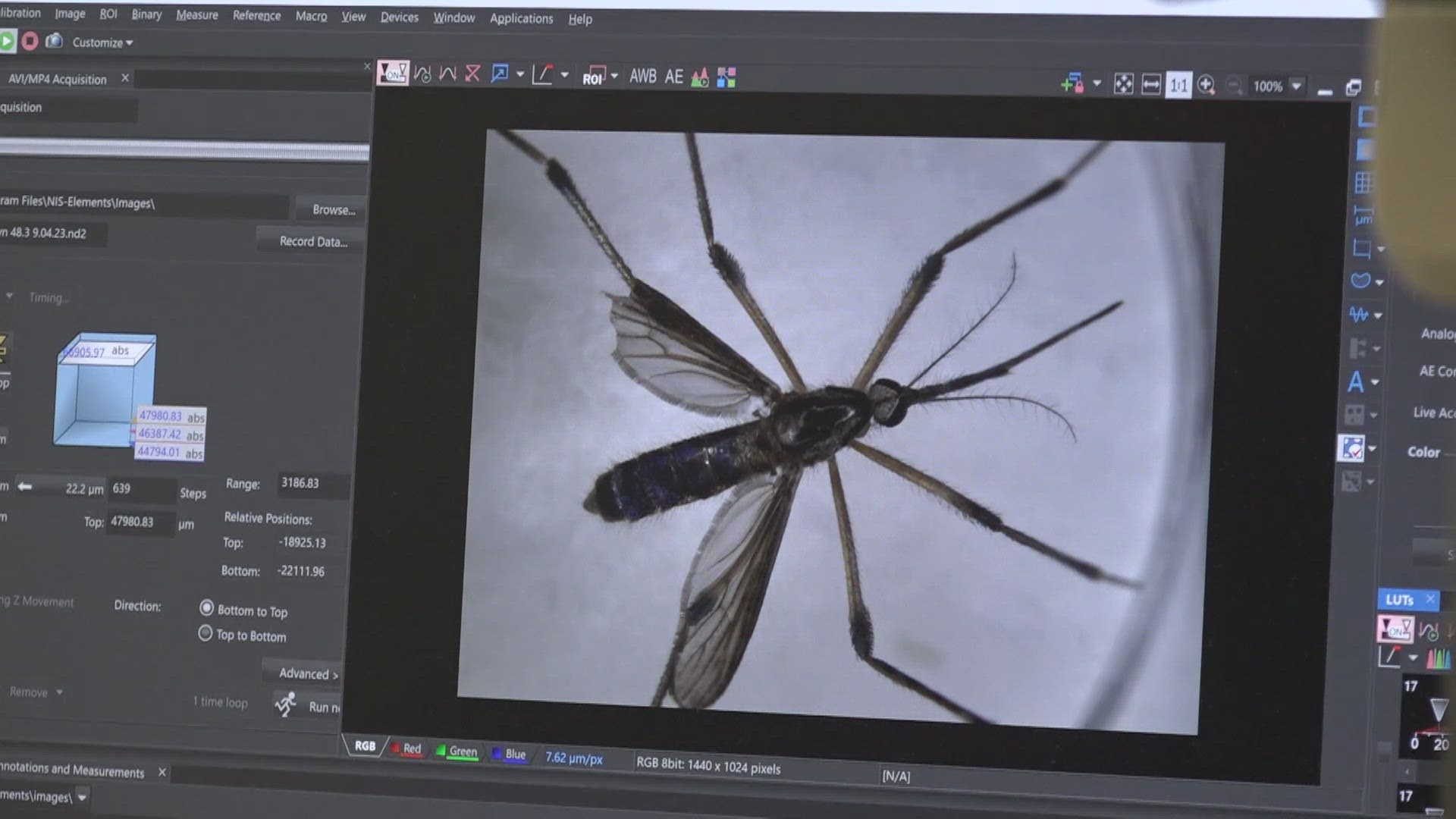ST. LOUIS COUNTY, Mo. — "Traditionally we've been seeing it around this time of the year in late summer and early fall," Mercy St. Louis Department of Medicine Chair Farrin Manion said, speaking about West Nile virus cases in St. Louis. "It's almost predictable we're going to see several cases."
There have been a few reported cases in St. Louis County already and hundreds across the country.
The Centers for Disease Control reports most West Nile cases are contracted in August and September. For 2024, there have been 289 reported human cases of West Nile virus in 33 states. 195 of the 289 cases have been the more severe form of the disease, which invades the brain and nervous system.
Severe West Nile complications can include brain swelling, brain damage and death. Mild symptoms include fever, headache, body aches, vomiting, diarrhea or rash.
There are no vaccines for West Nile. There are no medications to combat the virus either. The CDC said the best way to prevent the virus is to prevent mosquito bites using EPA-registered insect repellents, wear loose-fitting long-sleeved shirts and pants and take steps to control mosquitoes.
The CDC and regional health departments recommend dumping standing water to prevent mosquito repopulation. Mosquitoes lay their eggs in water.
St. Louis County runs a surveillance-based mosquito mitigation program.
Health department teams go out at night, set traps and then bring what they've captured to the lab. The winged insects are counted, put in tubes, frozen and tested. Specialists do a PCR test on the mosquitos, like what we would do for flu or COVID, but for insect-borne disease.
St. Louis County Vector-Borne Disease Prevention Specialist Tony Patullo explained, "We test for West Nile in addition to St. Louis Encephalitis and Eastern Equine Encephalitis. Typically, throughout the mosquito season there's really not much West Nile at the beginning of the year, but by about this time of the year we see it pretty much everywhere throughout St. Louis County."
By this time of year, Patullo is referring to August and September, on par with national trends.

